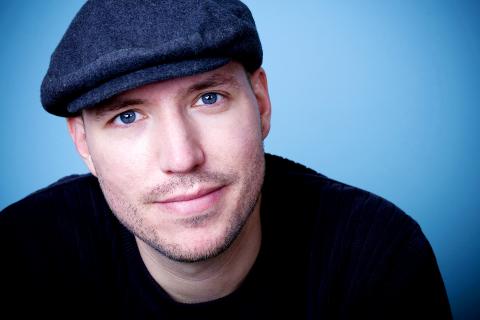Brett Johnson is a household name to those who were spinning vinyl before digital technology took over. The Dallas native has produced some of the best dance-floor-rocking tracks on Derrick Carter’s Classic label. His ability to transform turntablism, techno and house music into something totally original and fresh makes him one of the most notable American DJ’s on the global scene. In recent years, he’s been touring internationally and frequently guest deejaying at Fabric in London and Cocoon in Ibiza. The Vinyl Word caught up with him before his mini Asia tour this weekend.
Vinyl Word: What have you been busy with?
Brett Johnson: Working on various projects. Most noteworthy would be my release on the very popular Visionquest in October. That being said, what I’m most excited about these days is my label Bang The Box. Recent and upcoming releases include music by John Tejada, Dave Aju, PillowTalk, JT Donaldson, Convextion, Tone of Arc, The Mole, King Kooba, Lance DeSardi and myself. Look out for our next release by yours truly called The Mission featuring blinding remixes by techno/electro legend Convextion aka E.R.P. aka Gerard Hanson and Lance DeSardi.

Photo courtesy of Brett Johnson
VW: What’s your favorite gig?
BJ: I regularly play big clubs around the world but the best experience I’ve had recently was at a small place in Houston. Sometimes all the right ingredients come together in the right amounts and magic happens. I’ve always thought a party was like a magic potion, you have to get it all right to make it work.
VW: What’s the house music scene like in Dallas?
BJ: The scene here is decent but like many cities in the States it’s hurt by close-minded dance laws that keep the scene from really growing. That being said we still have lots of underground after-parties that go all night. The Sounds Like crew throw most of the best parties in Dallas. We also just had a new club open called It’ll Do and they are committed to bringing quality talent so that’s been fun.
VW: How do you approach an audience who expects to hear commercial stuff?
BJ: It’s a matter of give and take. I’ll never play a track I’m not into, but I’ll interpret what they want and play something that’ll hopefully satisfy them. Something that has a vocal or better yet a bootleg of something they actually might know. It always has to be on my terms or the sound/context of the night could be compromised. It’s a painting and the crowd is my subject but I get to choose the colors.
VW: What‘s next for you?
BJ: More releases, new album, lots of touring and some camping with my family.
■ Tomorrow night from 10pm to 4am with supporting DJ’s Mr Uppity, Nina, and Hooker at Luxy, 5F, 197, Zhongxiao E Rd Sec 4, Taipei City (台北市忠孝東路四段201號5樓). Admission is NT$300 before 11pm, and NT$600 after.

In the March 9 edition of the Taipei Times a piece by Ninon Godefroy ran with the headine “The quiet, gentle rhythm of Taiwan.” It started with the line “Taiwan is a small, humble place. There is no Eiffel Tower, no pyramids — no singular attraction that draws the world’s attention.” I laughed out loud at that. This was out of no disrespect for the author or the piece, which made some interesting analogies and good points about how both Din Tai Fung’s and Taiwan Semiconductor Manufacturing Co’s (TSMC, 台積電) meticulous attention to detail and quality are not quite up to

April 21 to April 27 Hsieh Er’s (謝娥) political fortunes were rising fast after she got out of jail and joined the Chinese Nationalist Party (KMT) in December 1945. Not only did she hold key positions in various committees, she was elected the only woman on the Taipei City Council and headed to Nanjing in 1946 as the sole Taiwanese female representative to the National Constituent Assembly. With the support of first lady Soong May-ling (宋美齡), she started the Taipei Women’s Association and Taiwan Provincial Women’s Association, where she

Chinese Nationalist Party (KMT) Chairman Eric Chu (朱立倫) hatched a bold plan to charge forward and seize the initiative when he held a protest in front of the Taipei City Prosecutors’ Office. Though risky, because illegal, its success would help tackle at least six problems facing both himself and the KMT. What he did not see coming was Taipei Mayor Chiang Wan-an (將萬安) tripping him up out of the gate. In spite of Chu being the most consequential and successful KMT chairman since the early 2010s — arguably saving the party from financial ruin and restoring its electoral viability —

It is one of the more remarkable facts of Taiwan history that it was never occupied or claimed by any of the numerous kingdoms of southern China — Han or otherwise — that lay just across the water from it. None of their brilliant ministers ever discovered that Taiwan was a “core interest” of the state whose annexation was “inevitable.” As Paul Kua notes in an excellent monograph laying out how the Portuguese gave Taiwan the name “Formosa,” the first Europeans to express an interest in occupying Taiwan were the Spanish. Tonio Andrade in his seminal work, How Taiwan Became Chinese,